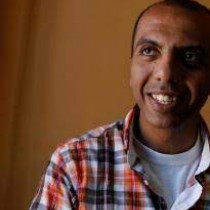As part of our ongoing commitment to encourage and support researchers from the region, we are delighted to announce our new cohort of Non-Resident Fellows for 2021.
Our 2021 fellows are from Algeria, Morocco, Egypt, Iraq, Yemen, and Libya and have expertise in a wide range of topics including, environmental governance, social movements, political economy, and gender equality. The fellows will each have their own research project while also contributing to our broader efforts to inform and animate debates about our region.
The 2021 ARI Non-Resident Fellows are:

Reem Awny Abuzaid has an interdisciplinary academic background; she has an MSc in sociology from LSE, an MA in political science, and an LLM in international and comparative law from AUC. Her previous studies focused on social movement, issues of law and society, and, particularly, the application of strategic litigation as a political tool in the Egyptian context.
At ARI, she will work on: Feminist Legal Activism in Post-2011 Egypt: Advancing Women’s Rights in Restrictive Environments

Sana Benballi is a professor of sociology at the University of Hassan II in Casablanca, Morocco. She is a research fellow at the Research Lab for Socio-anthropological Differentiations and Social Identities (LADSIS). Her doctoral thesis deals with the feminization of service jobs and women’s access to the masculine space of cafés in the city of Casablanca. She also conducts gender studies and has long worked on disabilities.
At ARI, she will work on: The presence and absence or invisibility of women in certain forms of social, political, and economic mobilization.

Mohamed Gad is an economic journalist and has worked with such newspapers as Masrawy, Al-Shorouk, Al-Shark Al-Awsat, and Zawya Arabic. He has also supervised the research unit in the Egyptian Center for Economic & Social Rights. He has written policy analysis for the Middle East Institute and papers in Jadaliya and the Egyptian Initiative for Personal Rights (EIPR). Mohamed is also a regular contributor to the news outlet Mada Masr.
At ARI, he will work on: Hospital Infrastructure in Egypt

Omar al-Jaffal is an Iraqi poet and journalist. He worked as a researcher on several projects on Iraq as part of the Conflict Research Programme (CRP) at the London School of Economics (LSE). He also works as a journalist for several Arabic and foreign outlets. He was awarded the Mostafa al-Hosseiny Prize in 2017 and was shortlisted for the Arab Journalism Award for Youth the same year.
At ARI, he will work on: ‘Tishreen’ Parties in Iraq: Obstacles of Arms, Funding, Organization and Membership Study of the new parties that emerged in the aftermath of the 2019 protests in Iraq

Asma Khalifa is a Libyan activist and researcher who has worked on human rights, women’s rights and youth empowerment since 2011. From 2014, she focused on peacebuilding in Libya. Her work in Libya includes improving women’s participation in local government and addressing gender-based violence. In 2015 she co-founded Tamazight Women Movement, a think/do tank that aims to research and advocate on women’s rights issues in Libya and North Africa.
At ARI, she will work on: Youth in Libya

Hisham Nagi is an Associate Professor and Head of Environmental Sciences Department in the Faculty of Petroleum and Natural Resources at Sana’a University. He is also a member of the Yemeni Observatory for Human Rights (YOHR) and acts as a consultant for several organizations, focusing on environmental studies, coastal and marine environments, coastal zone management, ESIA, and environmental management.
At ARI, he will work on: An Assessment of Current Environmental Policies and Laws in Yemen

Dris Nouri is a researcher and lecturer in sociology at the University of Lamine Dabbaghine (Setif / Algeria), a member of the Arab Council for Social Sciences (Beirut), and a researcher in the laboratory of contemporary Algerian society. He is interested in studying the transformations of Algerian society in particular and the impact of the rentier economy on the process of democratization in the Arab region in general. He wrote his doctoral thesis on: “Rentier practices, political clientelism, and the problematic of civil society in contemporary Algeria” (2016).
At ARI, he will work on: Civil society in power and the Algerian Hirak - Mechanisms of containment and submission
Our Non-Resident Fellowship operates on a 12-month basis and provides fellows with an opportunity to conduct new research while also engaging in policy debates and processes.
The Arab Reform Initiative remains more committed than ever to our goal of encouraging and supporting an ecosystem of researchers from the region working on a home-grown agenda for democratic change, social justice, and gender equality. In 2021, we have expanded our teams in Beirut and Tunis and launched our Environmental Politics Programme and SAWT Project (Support Arab Women at the Table).
To contact our fellows, or if you have any questions, please email: contact@arab-reform.net
The views represented in this paper are those of the author(s) and do not necessarily reflect the views of the Arab Reform Initiative, its staff, or its board.
